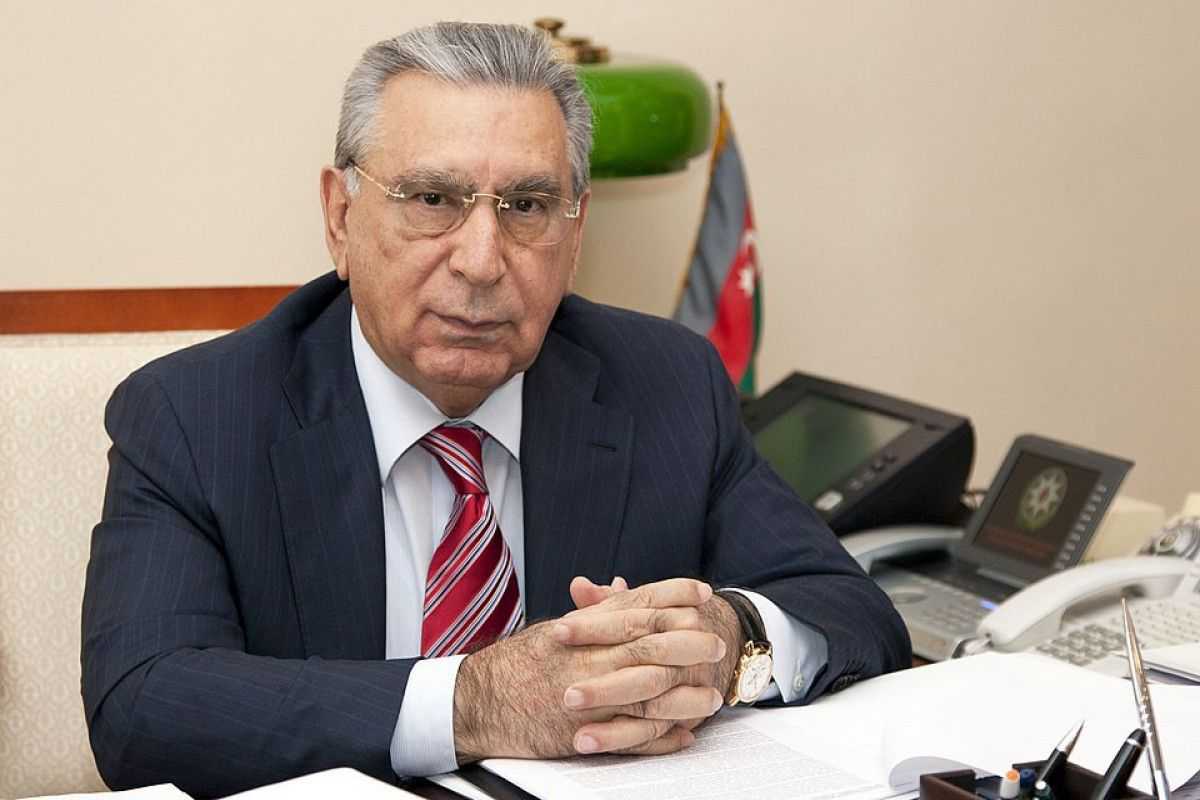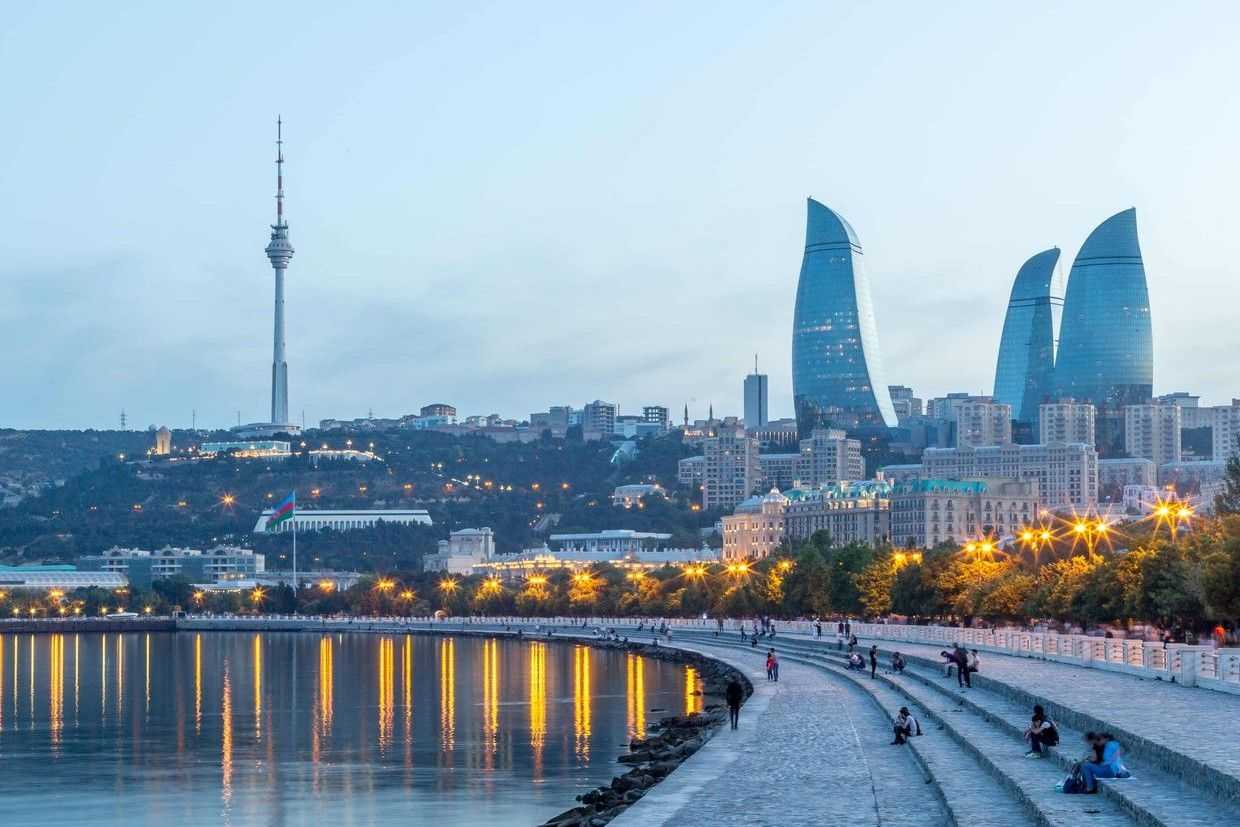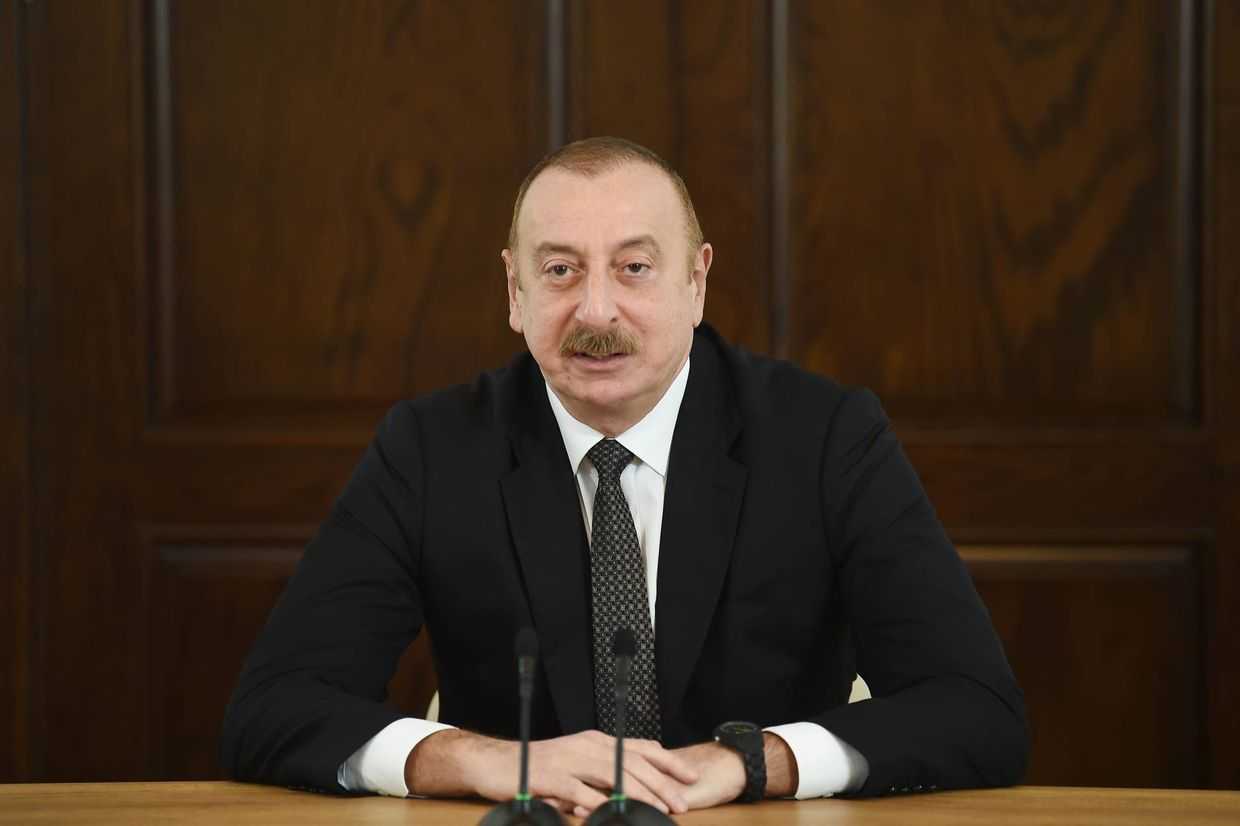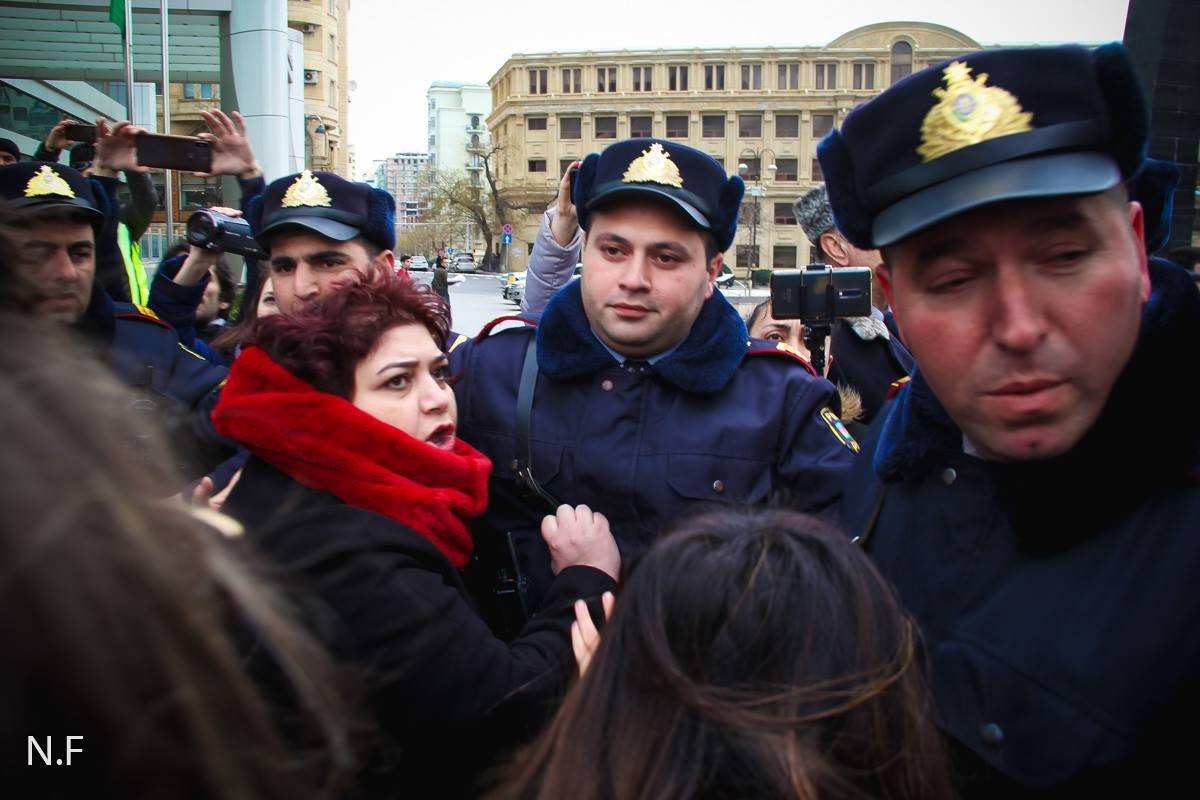
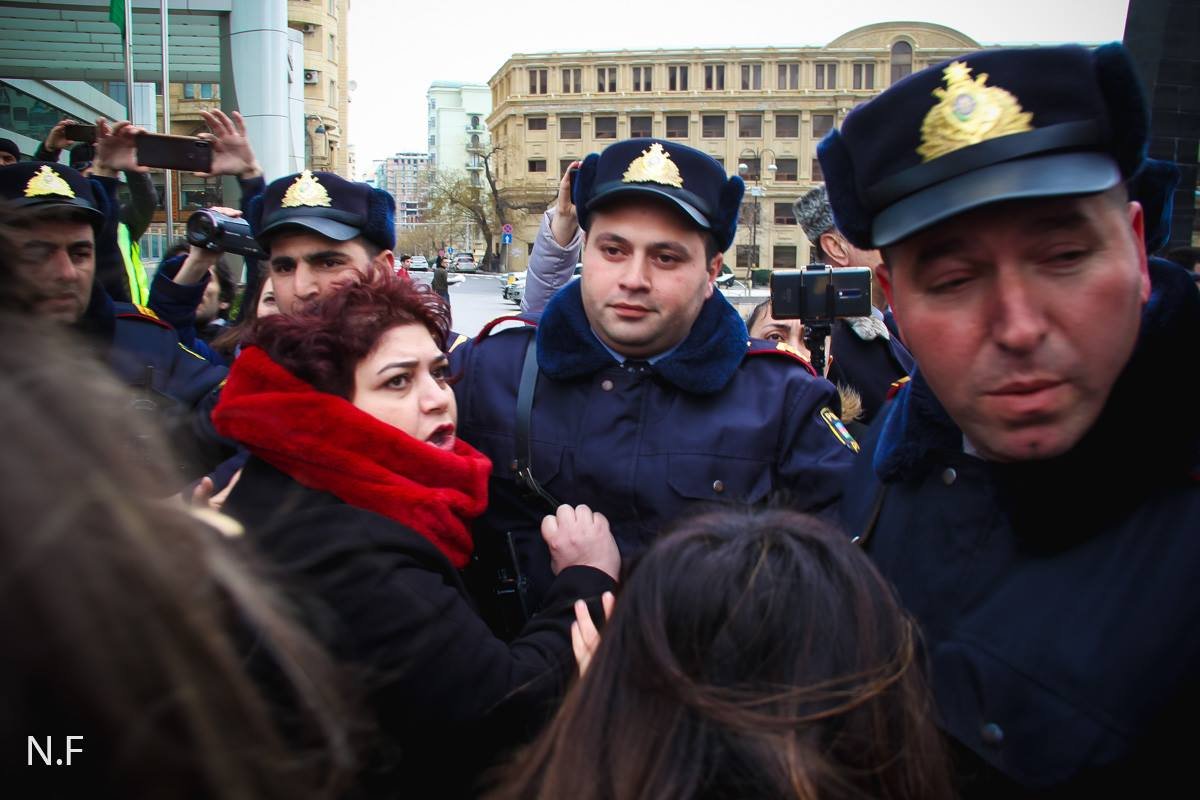
Police in Baku dispersed a march for equality and against violence against women on 8 March, International Women’s Day.
Over 50 women and men who had gathered in front of the city’s Statue of a Liberated Woman were immediately confronted by police. During the first few minutes of the action, officers confiscated all the participants’ posters, while several of them continued to shout ‘No to violence against women’.
The participants were then attacked by a group of 10 middle-aged women, who attempted to break their phones and other equipment while police officers looked on and did not intervene.
The women shouted at the participants with phrases including: ‘you need a man’, ‘you are promoting marriages between men here’, ‘women should not marry each other’.
Several participants of the march told OC Media that they were certain the women were sent by the authorities to disrupt the rally.
Police officers then surrounded the crowd, pushing them inside the Nizami subway station.
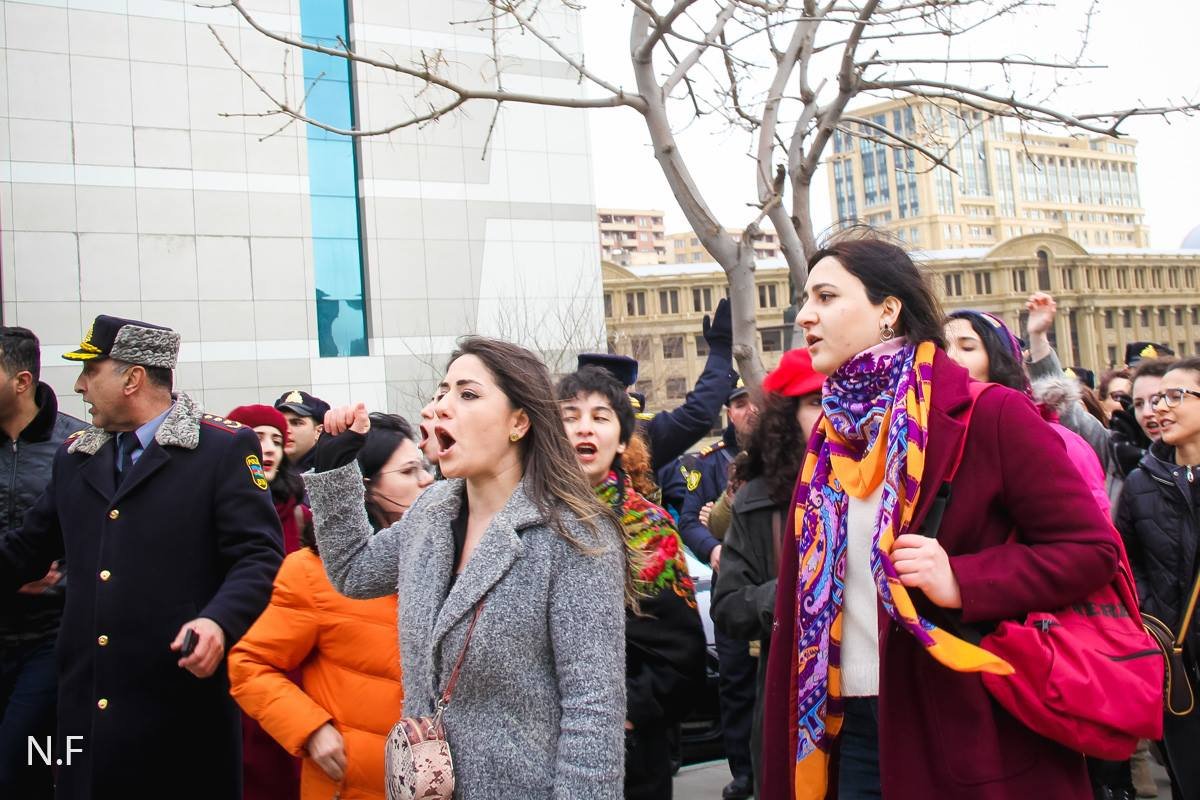
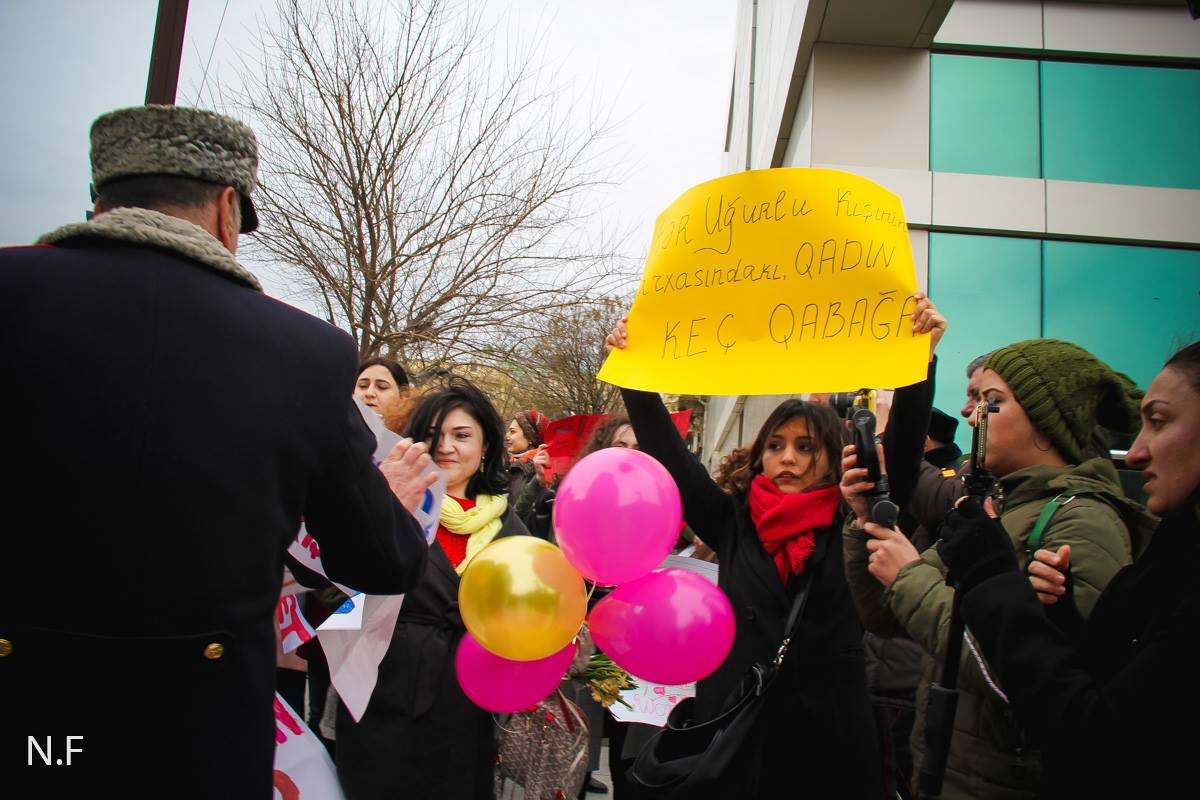
According to one of the participants, Hamida Giyasbeyli, a small group of around 20 people then went to the planned end point of the march, the Nathavan Monument, where a group of street sweepers forced them to leave.
‘They obviously did not do this on their own initiative. These women also tried to somehow shame us. They tried to drive us out of the main street until we broke into groups of 2–3 people. Then they stopped pursuing us’, Hamida told OC Media.
Five men were detained during the march but were released within an hour. One of the march’s organisers, Gulnara Mehdiyeva said that during their detention, the men were questioned about their sexual orientation.
Human rights activist Omar Mammadov, who took part in the march said that the police detained only men because in Azerbaijan it was considered ‘unacceptable’ to detain women.
‘I went there because I support equal social and labour rights for women’, Mammadov told OC Media.
‘There were only a few men on the march; around 20% of all involved. But we were all standing against the patriarchy of our society that causes violations against women and discrimination against them.’
OC Media has reached out to the Baku police for comment.
Unacceptable without notifying authorities
According to Gulnara Mehdiyeva, Baku’s Yasamal District Police Department asked the organisers to cancel the march two days before it was scheduled to take place.
‘We were firmly convinced that we should not inform the executive authorities of the city about the march as traditionally, it has always been a free march for women’s rights, which should not be cleared with the official authorities. Therefore, we did not notify the executive power of Baku about the march’, Mehdiyeva told OC Media.
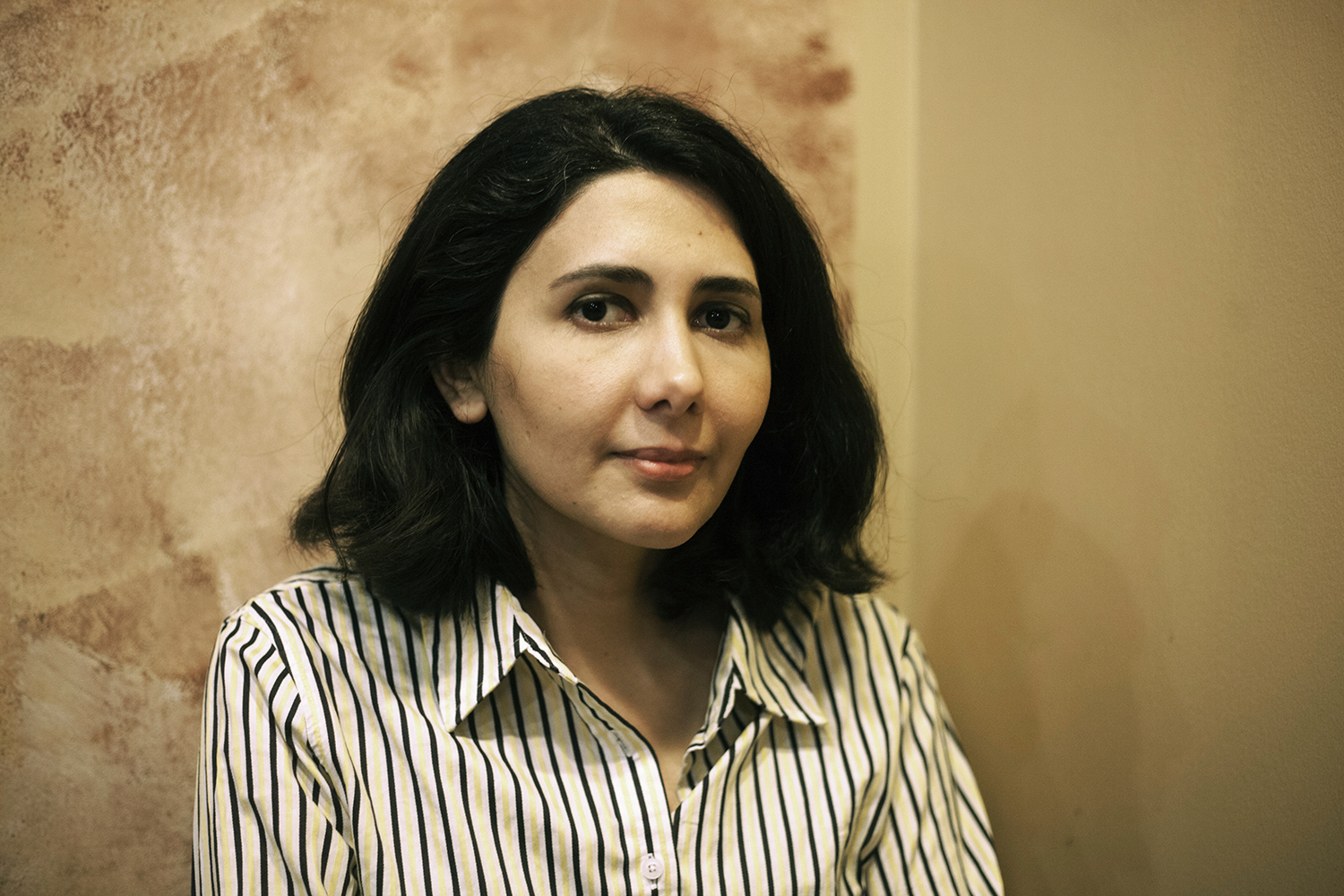
On 6 March, the Baku Main Police Department reported that holding any mass action without the consent of the city’s executive power was unacceptable and would be stopped by police.
‘I was forced to announce the cancellation of the action. But due to the fact that many women were contacting me saying that they still wanted to speak for their rights, I wrote [on Facebook] that the action would be unauthorised and that we could not take responsibility for the safety of participants’, Mehdiyeva said.
‘I’m sure that even if we notified the authorities, we would hardly have been allowed to hold a march. In Azerbaijan it is very difficult to get permission for mass actions. Nevertheless, next year, we will, of course, notify the executive branch before holding the march’, says the organiser.
Investigative journalist Khadija Ismayil, who took part in the march, told officers that according to Article 4 of Law on Freedom of Assembly, events held on national holidays did not need to be cleared with the authorities.
‘Fake’ women
Hamida Giyasbeyli, one of the marchers, said that despite the march being against violence against women, during the action itself there were repeated instances of violence against female participants.
‘One of the elderly women who appeared unexpectedly at the rally shouted hysterically, insulted us, and then grabbed my scarf and began to choke me with it’, Giyasbeyli told OC Media.
‘The police saw what was happening but did not take any action. Only when I screamed because I could not breathe at all did they try to somehow calm this woman down’, she said.
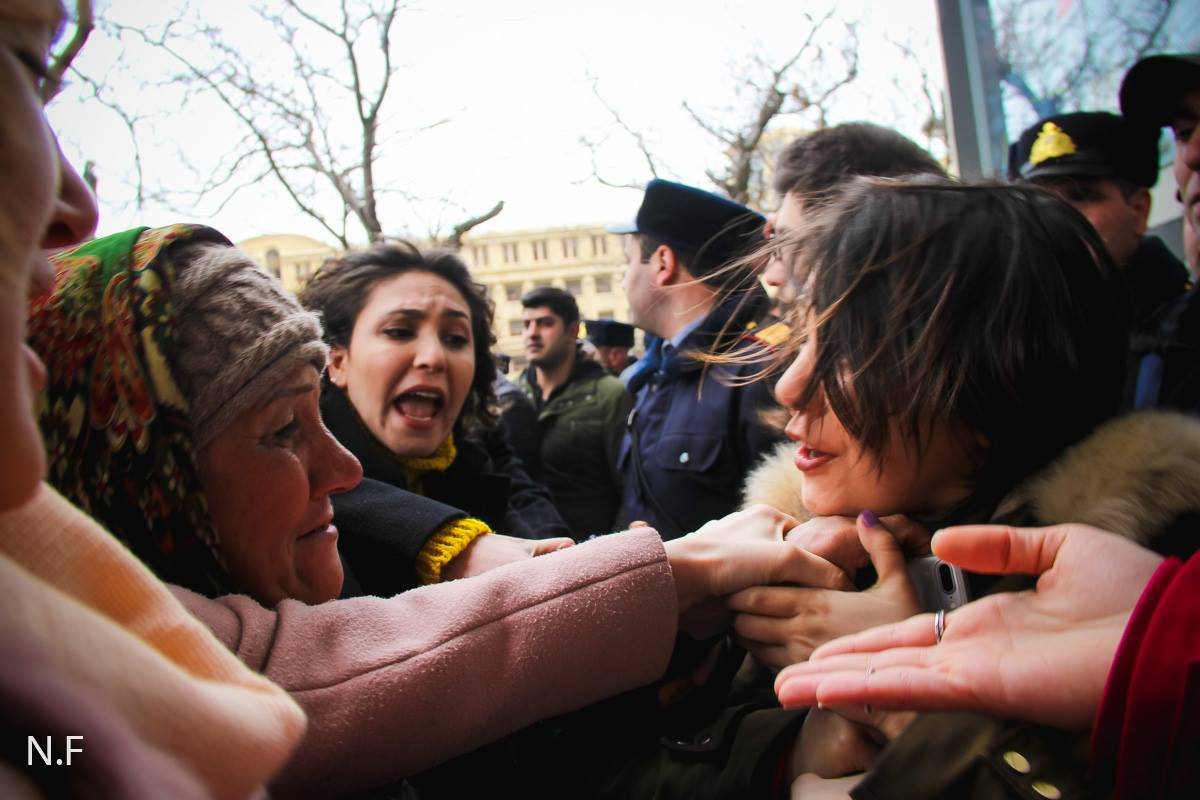
‘It was quite clear that these women were fake and that they were paid to undermine the participants’ confidence using Azerbaijani society’s usual methods of psychological pressure — to shame, insult, accuse’, said Giyasbeyli.
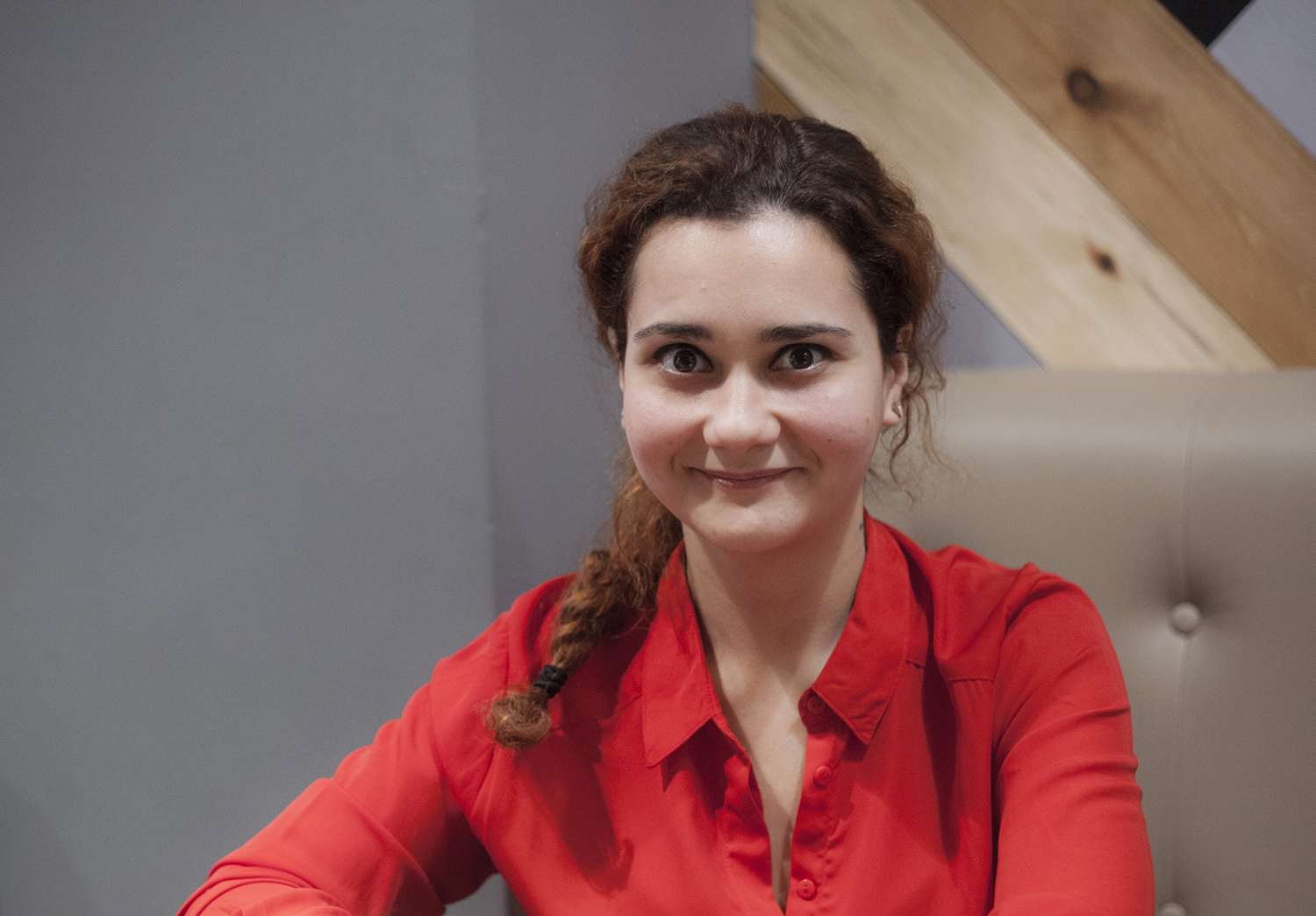
One participant who asked not to be named told OC Media that a policeman punched her in the face and pushed to the ground.
Shahla Ismayil, who represents international rights group the Human Rights House and heads local women’s rights group the Women’s Society for Rational Development insists that the women disrupting the march were sent by the authorities.
‘We have noticed [similar things] during political actions. During this non-political action, this method was inappropriate and disastrous’, Ismayil told OC Media.
‘The behaviour of these women during the action was shameful. And I believe that this was a mistake on the part of the authorities, to make a peaceful demonstration into such a political thing […] there was no reason for this kind of violence’, she said.
Absolutely unacceptable reaction
Ismayil said that the authorities’ reaction to the march was absolutely unacceptable.
‘Indeed the model of patterned behaviour [from the authorities] works towards absolutely all mass protests, which are our constitutional right, and there was no illegal activity in this case’, Ismail said, adding that participants were not using ‘political slogans’.
[Read on OC Media: Baku authorities ‘systematically ban’ protests following January rally]
In neighbouring Georgia, two separate women’s rights rallies went ahead peacefully. The first was protesting against sexual violence while the second was calling for better labour conditions for women.
Georgian police escorted away one man who became aggressive after reading their posters, which included messages such as: ‘A short skirt doesn’t stand for an invitation’, ‘forced marriage is a crime’, and ‘sex without consent is a crime’.



